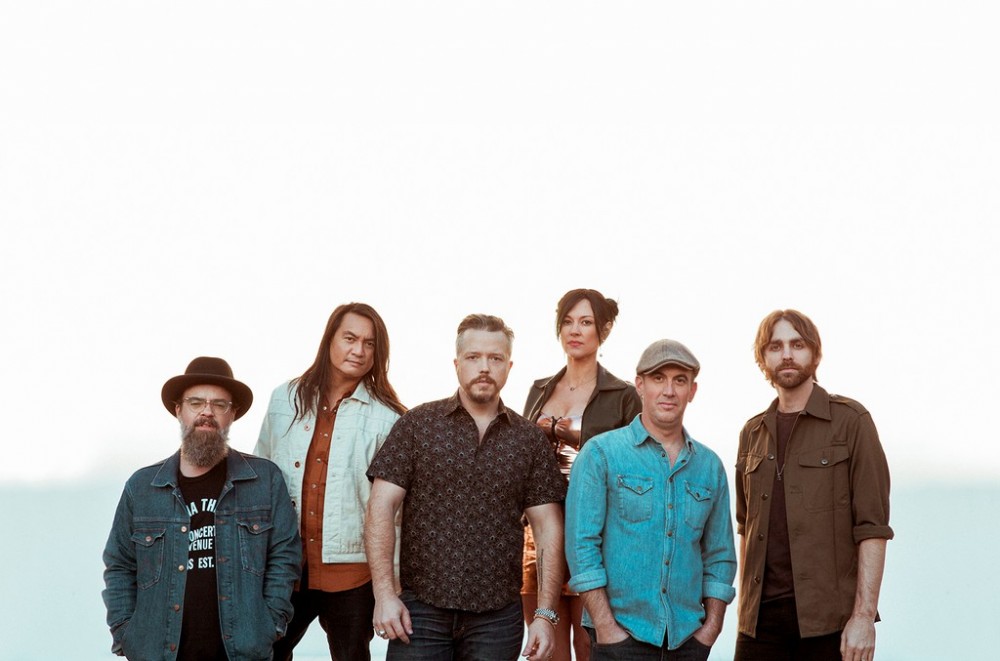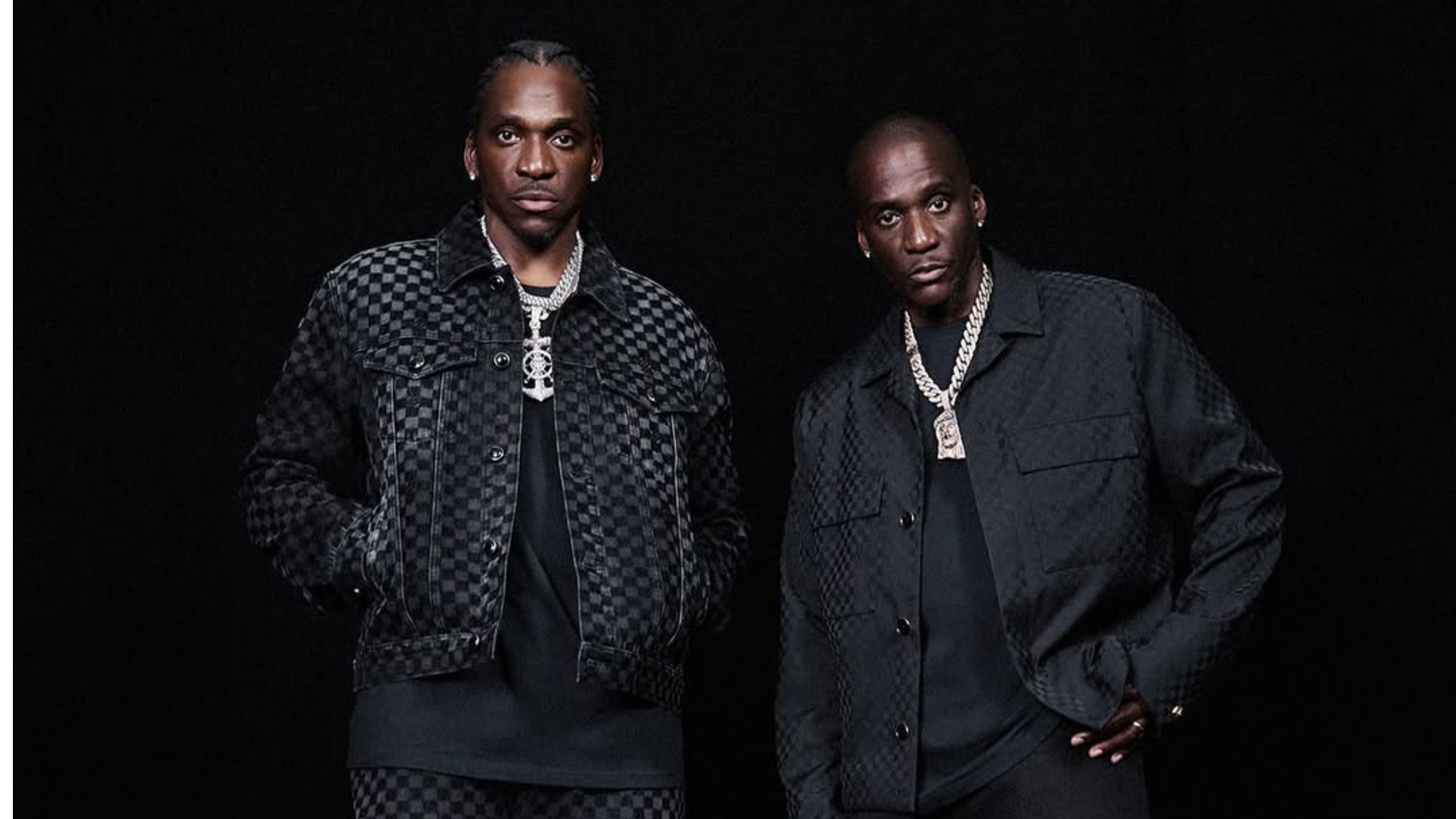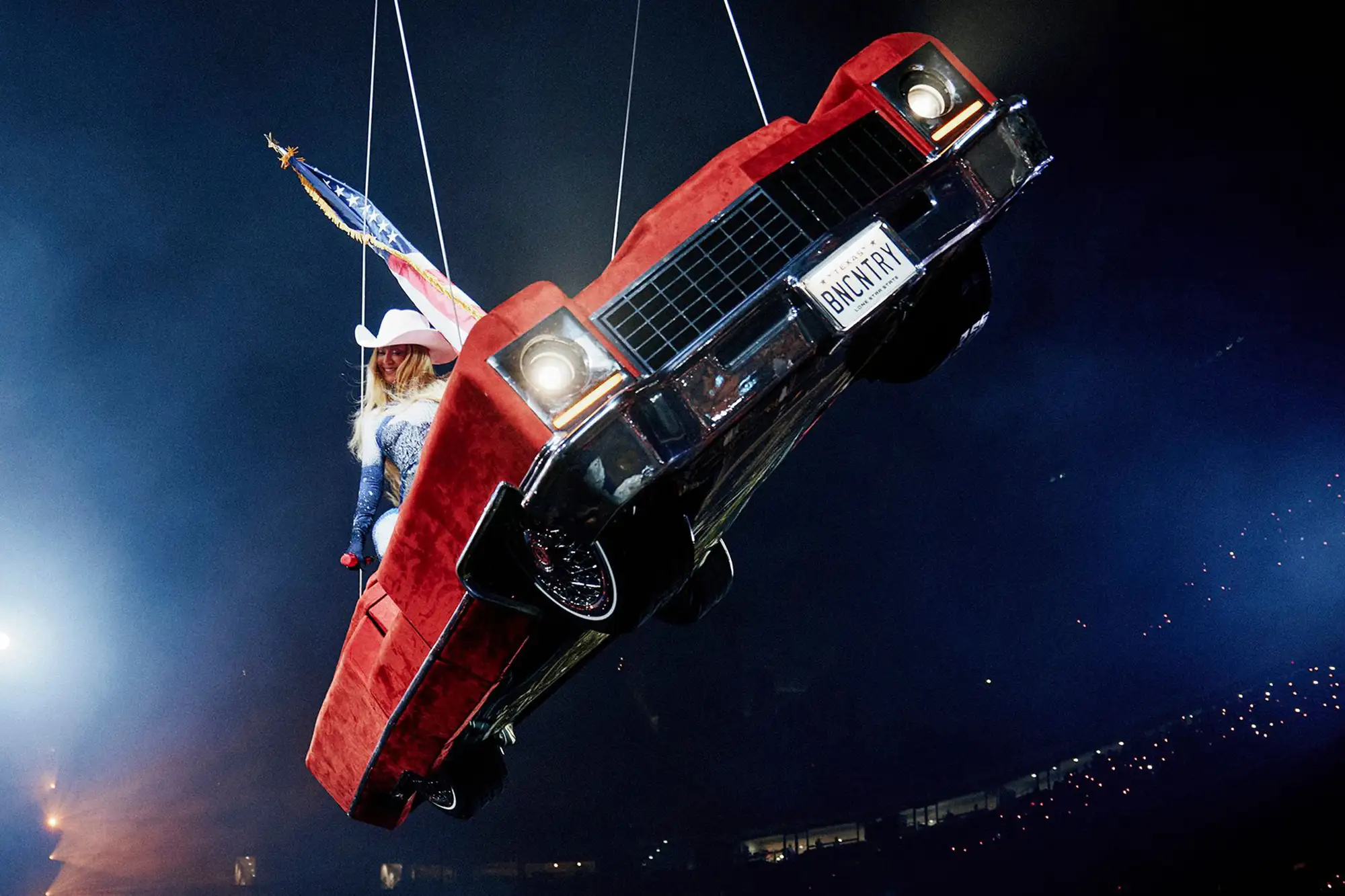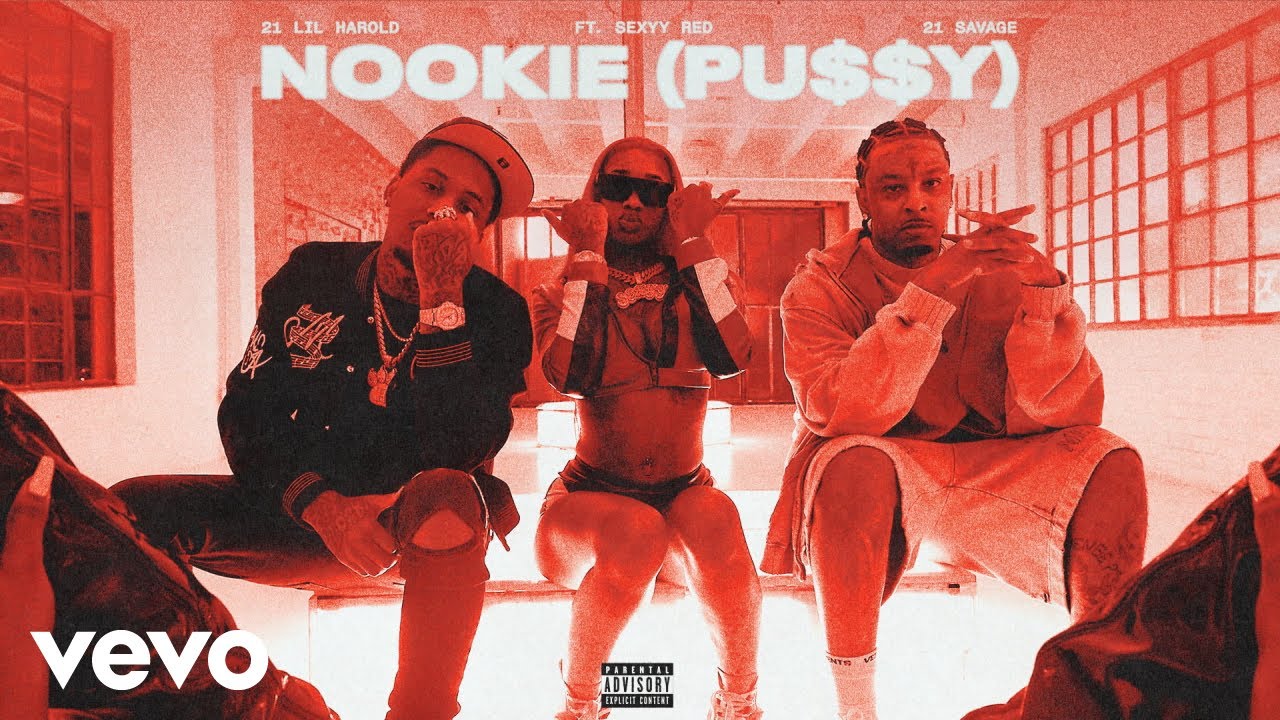“Nothing’s too personal for me,” says Jason Isbell. And indeed, during a discussion about Reunions, his new album with his band the 400 Unit, out today, and his career, he never avoids answering any question- except one.
As fans of his previous six albums are aware, the four-time Grammy winner is a singular story teller who often reveals more truths in a few words than those less adept do in a whole album. Reuniting with producer Dave Cobb, Isbell and his band bring a new vitality to the rock/Americana set, recorded at Nashville’s historic RC Studio A.
The songs sizzle with bold, unflinching declarations of loss, longing and love. Album closer “Letting You Go” looks forward at watching his young daughter reach certain milestones, but, otherwise, much of the album is rooted in Isbell’s past. It’s a place he was ready to revisit after years of avoiding. But as he stressed in our interview, he didn’t get there alone— his wife, singer/songwriter Amanda Shires— often helped him cross the finish line.
In a wide-ranging Q&A, he talked about creating the album, his success with “Maybe It’s Time” from A Star is Born, whether Bob Dylan is a poet and losing his good friend John Prine.
Billboard: Much of this album is about looking back. From the opening song, “What’ve I Done To Help,” when you sing “my memories gathered around me in the night,” you’re taking us on a journey back in time. What made you take that approach and did any of it have to do with turning 40?
Jason Isbell: Maybe it did. It wasn’t a conscious decision though. I sit down and try to write about what’s on my mind and be as honest as I can until I have enough songs to make a record. The themes wind up happening incidentally. When the songs are done, I’ll look back and I think, “Well, what am I talking about?” And I think that’s almost another form of editing for me. I postpone that until I’m done because I don’t want to cut myself off creatively in the middle of the process. When I’m done writing, I’ll look back and I think, what am I writing about?” And then I’ll give the record a title and that’s how I got the title Reunions. I was in a lot of ways reuniting with the person that I used to be and also reuniting with people who, for whatever reason, are no longer in my life now. There are so many ghosts on this record. You never run into a ghost that you haven’t already met before.
On this album, even the ghosts are restless, as you sing on “Overseas”: “It used to be a ghost town, but even the ghosts got out.” This album deals with the fact that some of these people are not coming back to you in any recognizable manifestation.
Right. Things are not going to be the same. And incidentally, that happened to line-up pretty well with the situation that we’re all in because whenever we do go out and resume our lives, our lives are going to be very different.
Clearly this was written without knowing a pandemic was coming, but so much of it resonates through that lens of what we’re going through now.
Right. I feel like as a society— probably worldwide— but definitely in our country, we had a pre-existing condition that made this virus have much more of an impact than it should have had. And I was writing about the pre-existing conditions. The holes in the yard. You know somebody’s going to step in one. Our yard was full of holes.
At what point do you know whether you’re working on a solo album or a 400 Unit album?
For the time being I feel like they’re all 400 Unit albums unless something happens to change my mind. If we’re stuck here in the house for another year, I’ll probably make a true solo album and I might just do all of that myself. It was a little different with Southeastern because a lot of that album was done just me by myself at Dave Cobb’s house.
So if the pandemic goes on long enough, we could have your version of Nebraska coming next.
I mean, who knows? Maybe. It probably won’t be that good. You might get The Ghost of Tom Joad.
On “River,” the protagonist goes to the river to say things he can’t say to people’s faces. Are you saying things in songs that you can’t say directly to people?
No. No, I don’t. I would never begin a conversation with somebody I’m close to once they’ve heard a song about them. I go to them first before the song happens. If I was 17 and nobody was hearing any of the songs that I was writing, it would probably be the opposite. But no, for me at this point in my life, I have to prepare people for that shit. You can’t sneak up on them like that.
Did you have to have any of those conversations before this record comes out?
I talked a lot with my wife about writing about personal things about our marriage and our relationship. That’s an ongoing conversation between us because we’re both songwriters and I think that’s something that you most definitely have to bring out into the open and be aware of or else either your songs or your marriage will fail. We discuss all those things as the songs are being written. She helps me edit the songs also.
I’m certainly not the first person to talk about your romanticism. The line, “I’ll lay myself inside her and I’ll let her carry me” on “River” is so beautiful. What did Amanda think when she heard that song?
She really kind of saved that song because of that last line. I didn’t think so much of that particular song when I’d written it, but when she heard it, she was like, “You’ve got to keep this one because this part here is so beautiful.” I look away from the more romantic, poetic lines in my songs. Left to my own devices, I’ll try to get as real and as honest and as direct as I can and that’s not always the right way to handle a song, especially one like this…Sometimes she’s just has to remind me, “you’re a songwriter, you’re not a poet.” She could do both, I can only do the songwriter part.
A lot of your fans would disagree.
Trust me, it’s not the same. It’s offensive to a real poet when you call a songwriter a poet because there are very specific rules and structures and it takes a long time. I watched my wife when she was getting her master’s a few years ago. Song writing has its own set of rules and structure, but not nearly as regimented as writing actual poetry.
Would you consider Dylan a poet?
Some of his poems I would consider poetry. I don’t consider his songs poems. That’s because I don’t think calling somebody a poet is any kinder than calling them a great songwriter. That’s kind of like saying my plumber’s so good that he’s a landscape architect. They’re both working on your property, but, no, those are two different jobs. I think it should be fine for Dylan to be the greatest songwriter of all time. That should be enough.
Speaking of legends, David Crosby sings on the opening track. Did that come from his performing with you at the Newport Folk Festival?
Yeah, that was the first time we met and we’ve been friends since then. His voice is still amazing. I learned how to sing harmony parts listening to David sing. David and probably Mike Mills from R.E.M. were the two people who I spent the most time with as far as harmony, vocals and backing vocals go. To have David singing one of my songs with me and my wife was a pretty incredible experience.
You released the album to independent record stores a week early on last Friday. Why?
I saw a lot of people asking online if I would put the record out early so they could stream it and I immediately thought that would be just a really bad thing for independent music stores who are suffering so much right now. So rather than put the record out early and shoot those guys in the foot, I started thinking maybe there’s something we can do to help them out.
How high you score on the Billboard charts is always a big deal for promotional purposes and I thought, “Man, that’s not really very important to me, especially not right now. It doesn’t really matter if we have a top five record or whatever, so why don’t I split the release between two weeks and let the independent retailers have it a week early? I’m not gonna convince myself that I’m single-handedly keeping places open because that’s obviously not the case, but maybe it’ll be a little bit of a bump at a time when they’re struggling.
In a recent GQ story, you said you only need to only sell 59,000 albums to break even since you own your label. Is there ever a conversation that the business side of you has with the artist side of you?
I try not to do that because I don’t want to write songs with the intention of selling anything and I figure if I do a good job on the business side, I won’t ever have to do that. I have people that I trust in those positions. If I didn’t have those things both in my personal control, then it would be very easy for me to think, “Oh, these guys are breathing down my neck to write a hit song.” And I never want to try to write a fucking hit song. I think that’s just a terrible thing to have to do with something as precious and as important as art.
“Maybe It’s Time” from A Star is Born earned you a platinum album. Have you thought about doing more film work or do you not want to write on command?
If the commands are “write something about this particular character or this particular story,” then that’s no problem. The problem is when they say write something that’s going to be commercially successful. That I won’t do. It’s up to them to make it commercially successful. I mean, had A Star is Born] not been popular, nobody would give a shit about that song, but it would still be the very same song. The thing that probably made me the happiest about The Star is Born situation is they took my song the way I wrote it. What I don’t like is sending somebody a song and then getting a whole bunch of changes. I originally started writing “What’ve I Done to Help” for a movie and then I thought, “Man, I’m not giving them this. I’m going to finish this for my own.” So that’s what I did and I sent them something different that they never wound up using.
Which movie was it for?
I would have already told you if I wanted to.
Fair enough. What music are you listening to during these anxious times that helps you?
Anytime I’m uncertain or sad or down, I go back and listen to the blues because I just don’t think there’s any better example of human resilience and creativity in the face of really, really difficult times. I enjoyed that new Dylan song a whole lot. I liked “I Contain Multitudes” better than “Murder Most Foul,” but I like both of them. I’m glad he’s putting music out.
You were very close to John Prine, who died from Covid-19. What did you learn from him?
John treated people with respect. He was somebody who didn’t use his talent and his ability as an excuse to be an asshole. He didn’t need a reason to respect people. He just defaulted to that and he was the same person on stage and off. I think that’s about as good as it gets, if you ask me.



